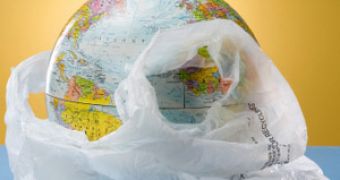In the aftermath of several reports stating that Haiti needs to deal with its mind-boggling amounts of trash as soon as possible, the country's high officials agreed that the best thing to do was to ban plastic bags and foam containers altogether.
Thus, starting this year's October 1st, this country is to no longer allow people to import, manufacture or market such items.
Rumor has it that, environmental protection aside, this Caribbean country is first and foremost worried about the fact that such plastic debris can end up keeping its sewage system from functioning properly, and this in turn can translate into significant risks for public health.
Not to mention the fact that the costs of dealing with such a potential clogging of the sewage system are quite significant.
In case anyone was wondering, Haiti's government is well aware of these problems as a result of past and present experiences.
Ecorazzi reports that the country's Prime Minister, Laurent Lamothe, told members of the press that, for the time being, the garbage resulting from Haitian citizens minding about their business clogs, “95 percent of our sewage system, creating mass floods in poor neighborhoods.
Moreover, “That is costing the state more than $50 millions (€38.81 million) a year if we had the means to clean up.”
However, some people have raised concerns with respect to the fact that no proper alternatives have been provided for the plastic bags and foam containers that are to be outlawed.
“Unless this ban goes hand-in-hand with a new product that can replace plastic bags and Styrofoam, it will not be successful, and is likely to heavily impact the poor who rely on these products to sell their goods on the informal market,” argued Sasha Kramer, the co-founder of a Haitian organization that is in the business of turning waste into compost and therefore is pretty much in the know when it comes to environmental protection and promoting a greener lifestyle.
Seeing how the trash produced in Haiti stands to also impact on the marine ecosystems surrounding its coastline, we welcome this endeavor and hope that similar ones will soon follow.

 14 DAY TRIAL //
14 DAY TRIAL //